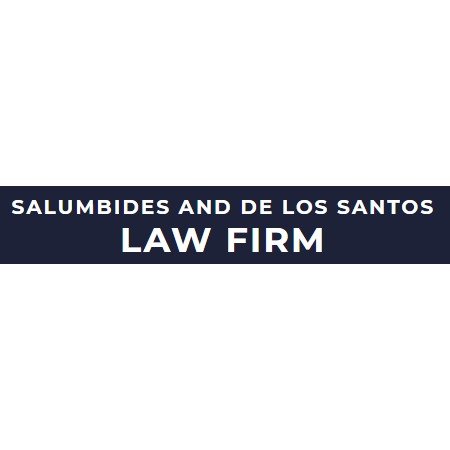Best Employment Rights Lawyers in Philippines
Share your needs with us, get contacted by law firms.
Free. Takes 2 min.
Or refine your search by selecting a city:
List of the best lawyers in Philippines

Dagsaan Monterde Castillo Law and Notary Public (DMC LAW)
15 minutes Free ConsultationPhilippines Employment Rights Legal Questions answered by Lawyers
Browse our 1 legal question about Employment Rights in Philippines and read the lawyer answers, or ask your own questions for free.
- Is it legal for a company to suspend an employee during investigation of allegedly fraud case
- I was surprised by my company this morning when my Team leader present me a letter coming from the hr that I was suspended for 30 days without notice of my violation
-
Lawyer answer by NARAG LAW OFFICE
That's perfectly legal. It's called preventive suspension without pay for a maximum of 30 days.
Read full answer
About Employment Rights Law in Philippines
The Philippines has a comprehensive framework designed to protect the rights of employees, primarily governed by the Labor Code of the Philippines. This legal structure ensures fair treatment, safe working conditions, and equitable compensation for employees. Employment rights cover a wide array of topics including wages, working hours, benefits, termination, and safety in the workplace. Various amendments and additional laws have been enacted to address evolving work environments and enhance protections for workers.
Why You May Need a Lawyer
Legal assistance may be required in various situations concerning employment rights in the Philippines. Common instances include disputes over wrongful termination, unpaid wages, harassment or discrimination in the workplace, and violations of contract terms. Lawyers specializing in employment rights can provide guidance on how to handle these situations, represent you in negotiations or court, and help you understand your legal options to ensure you're treated fairly according to the law.
Local Laws Overview
The key aspects of local laws relevant to Employment Rights in the Philippines include:
- Labor Code of the Philippines: This is the primary legislation governing employment practices and worker protections.
- Minimum Wage: The law mandates regional minimum wages which are periodically reviewed and adjusted by the Regional Tripartite Wages and Productivity Boards.
- Working Hours and Overtime: Regular work hours should not exceed 8 hours per day, with overtime pay required for hours worked beyond this.
- Employment Contracts: Contracts must comply with the minimum standards set by the Labor Code. Changes to contractual terms must be agreed upon by both parties.
- Termination and Retirement: Clear guidelines exist for just and authorized termination, including the necessity of due process. Retirement benefits are also stipulated under Philippine laws.
- Occupational Health and Safety: Laws such as the Occupational Safety and Health Standards (OSHS) protect workers’ health and safety in the workplace.
Frequently Asked Questions
What is the process for addressing wrongful termination in the Philippines?
If you believe you have been wrongfully terminated, you should seek legal advice. You can file a complaint with the National Labor Relations Commission (NLRC) or consult with a lawyer to discuss potential legal action.
How are labor disputes resolved in the Philippines?
Labor disputes can be resolved through various means including mediation, conciliation, arbitration, or through the NLRC. A lawyer can provide guidance on the appropriate method based on your specific situation.
What are the statutory benefits an employee is entitled to?
Statutory benefits include maternity leave, paternity leave, 13th-month pay, overtime pay, and holiday pay, among others. Employers are required to provide these benefits as per the Labor Code.
How can I ensure my employment contract is fair and legal?
It's advisable to have a lawyer review your employment contract to ensure it complies with the Labor Code. Contracts must provide at least the minimum legal standards to be considered valid.
Can an employer reduce my salary once the contract is signed?
An employer cannot reduce your salary without your consent. Any changes to the employment contract must be mutually agreed upon and comply with legal standards.
What should I do if I experience discrimination at work?
If you face discrimination, document the incidents and consult a lawyer for advice on legal action. You can also file a complaint with the appropriate government agency.
What rights do I have during a company shutdown or retrenchment?
During shutdowns or retrenchments, employees are entitled to specific notices and benefits under the law, including separation pay. Legal consultation can clarify your rights in such scenarios.
How is overtime pay calculated?
Overtime pay is generally computed as 125% of your regular hourly rate for work performed beyond 8 hours per day, with higher rates applicable for work done during holidays or rest days.
What is the importance of safety compliance in the workplace?
Compliance with safety and health standards is crucial to prevent occupational hazards. Employers are required by law to maintain a safe working environment, and employees can report violations to the Department of Labor and Employment (DOLE).
Can I file a complaint anonymously for workplace violations?
While anonymous complaints can be challenging, you can discuss this with a lawyer who can assist in finding a suitable way to address the issue, possibly through workers' associations or unions.
Additional Resources
The following resources and organizations can be exceedingly helpful:
- Department of Labor and Employment (DOLE): They provide information on worker rights, laws, and procedures for filing complaints.
- National Labor Relations Commission (NLRC): The primary agency for resolving labor disputes in the Philippines.
- Public Attorney’s Office (PAO): Offers free legal assistance to low-income individuals.
- Trade Unions and Workers' Associations: These organizations often provide guidance and support concerning employment rights issues.
Next Steps
If you need legal assistance in employment rights, consider the following steps:
- Identify your specific employment issue and gather all relevant documents and evidence.
- Consult online resources or government agencies to understand your basic rights and obligations.
- Seek legal advice from professional lawyers specializing in employment law to discuss your situation comprehensively.
- Consider mediation or conciliation as an initial path to resolve disputes, as suggested by your lawyer.
- If necessary, file formal complaints or legal proceedings with the guidance of your legal counsel.
Proceeding with informed and professional guidance increases the likelihood of a fair and lawful resolution to your employment concerns.
Lawzana helps you find the best lawyers and law firms in Philippines through a curated and pre-screened list of qualified legal professionals. Our platform offers rankings and detailed profiles of attorneys and law firms, allowing you to compare based on practice areas, including Employment Rights, experience, and client feedback.
Each profile includes a description of the firm's areas of practice, client reviews, team members and partners, year of establishment, spoken languages, office locations, contact information, social media presence, and any published articles or resources. Most firms on our platform speak English and are experienced in both local and international legal matters.
Get a quote from top-rated law firms in Philippines — quickly, securely, and without unnecessary hassle.
Disclaimer:
The information provided on this page is for general informational purposes only and does not constitute legal advice. While we strive to ensure the accuracy and relevance of the content, legal information may change over time, and interpretations of the law can vary. You should always consult with a qualified legal professional for advice specific to your situation.
We disclaim all liability for actions taken or not taken based on the content of this page. If you believe any information is incorrect or outdated, please contact us, and we will review and update it where appropriate.
Browse employment rights law firms by city in Philippines
Refine your search by selecting a city.
















